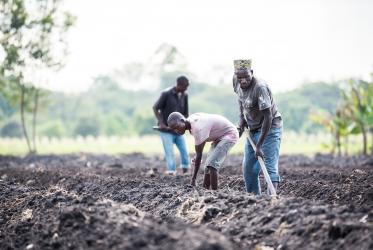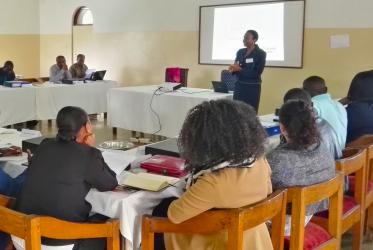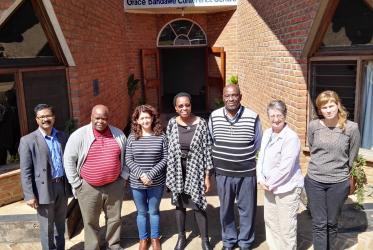Displaying 1 - 8 of 8
Re-engineering life forms: Church forum raises concerns
09 November 2017
African youth takes stand at first ever WCC Eco-School
03 August 2017
Applications open for WCC Eco-School
10 May 2017
Letters to the future: Eco-justice visions in South Africa
13 December 2012






